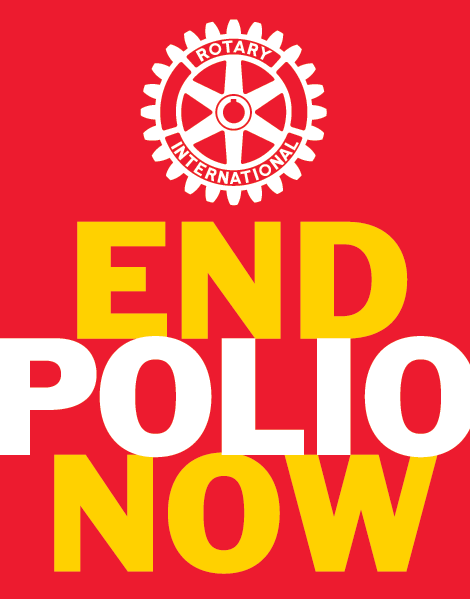ROTARY AND UNESCO-IHE PARTNERSHIP LEADS TO 16 NEW WATER SCHOLARS

The first class of Rotary sponsored scholars, who began their studies in October 2012, successfully completed their first year of an 18-month Masters of Science degree program at UNESCO-IHE, a United Nations Institute in Delft, The Netherlands. They are now embarking on a six-month thesis period. After graduation in April 2014, the scholars’ expertise will be put to work improving water and sanitation conditions in their own communities with projects the scholars and sponsoring Rotary members will design and implement together in their respective countries of Argentina, Uganda, Nigeria, Ethiopia, and Ghana.
“Students finished a year of challenging class work and are beginning their 6-month research component on issues of water management,” said Michael McClain, professor at UNESCO-IHE. “After completion of their thesis projects, students will be ready to enter into the broader water management area and focus on the more important issues of bringing people, water, and economic development together,” said Dr. Michael McClain.
“I will work at the National University as a lecturer and consultant, training future water professionals and contributing to public interests,” said Gonzalo Duró from Argentina, a student from the first Rotary/UNESCO-IHE class. “Based on the idea that the future generation is key to start a change in how humanity uses water in an increasingly challenging world, our plan is to build a traveling educational program to educate kids on water care.”
Through this unique partnership, Rotary is providing more than funds for scholarships. Rotary clubs and Rotary members are mentoring students both in their home country as well as during their stay at UNESCO-IHE in The Netherlands. These relationships and networks will enable the students to effectively implement their skills upon return to their home country.
“These highly motivated individuals are fully committed to raising the standards of water sanitation in their home country,” said Henk Jaap Kloosterman, member of the Rotary Club of Voorburg-Vliet, The Netherlands. “With their dedication and with the support of the local and sponsoring Rotary clubs - they will deliver tangible results and save lives.”
According to a joint report by the World Health Organization and UNICEF, about 2.5 billion people worldwide do not have access to improved sanitation facilities. About 884 million obtain water for drinking, cooking, and washing from unprotected sources. Waterborne diseases such as diarrhea, cholera, typhoid, and dysentery, claim nearly two million lives a year, most of them children under age five. The continuous task of fetching water keeps millions of people, especially women and girls, from going to school and holding productive jobs. Improved water and sanitation is key to reversing this trend.
"I am proud of the partnership between Rotary International and UNESCO-IHE in developing the capacities of young professionals in countries and regions where they are needed the most,” said András Szöllösi-Nagy, Rector of UNESCO-IHE Institute for Water Education. “Safe drinking water and appropriate sanitation are vital factors in human health and quality of life. But much knowledge and capacities are needed to build strong local and regional education and research environments and adequate institutions to enable sustainable change.”
“In Uganda, a number of water supply systems have collapsed due to poor design, poor operation and maintenance structure,” said Hilary Muhereza, one of the 16 scholars to start in October who plans to tackle the issue in his home country of Uganda. “There is a lack of technical expertise especially in flood risk management to mitigate the problem. Uganda lacks professionals in the water industry to work with new technologies and tools such as web based information and knowledge networks.”
The Rotary Scholarships for Water and Sanitation Professionals was established in 2011 to address the world’s water and sanitation crisis and promote long-term productive relationships between Rotary members and highly skilled water and sanitation professionals in their communities. Through this strategic partnership, The Rotary Foundation – the charitable arm of Rotary International – provides grants to Rotary clubs and districts to select and sponsor students each year for scholarships to any of three 18-month Master of Science degree programs at UNESCO-IHE including: MSc in Urban Water and Sanitation, MSc in Water Management, MSc in Water Science and Engineering.
ABOUT THE STUDENTS
First class: The UNESCO-IHE students selected for a 2012-2013 Rotary Scholarship include: Temesgen Adamu (Ethiopia), Godfrey Peterson Baguma (Uganda), Kenechukwu Okoli (Nigeria), Bernice Asamoah (Ghana), and Gonzalo Duró (Argentina).
Second class: Sixteen UNESCO-IHE students selected for a 2013-2014 Rotary Scholarship: Hector Nava Oritz (Mexico), Badruz Zaman (Indonesia), Emmanuel Umolu (Nigeria), Fidel Vargas-Albornoz (Bolivia), Saheed Yinusa (Nigeria), Fatai Adelani (Nigeria), Adeniyi Adebiyi (Nigeria), Bhekisisa Mkhonta (Swaziland), Bongani Bhembe (Swaziland), Hilary Muhereza (Uganda), Anthony Akpan (Nigeria), Mohamedelfatih Eljalabi (Sudan), Ruchira Jayathilaka (Sri Lanka), Juma Yahaya (Tanzania), Mark Johnson (Liberia) and Sachin Tiwale (India).
ABOUT UNESCO-IHE
UNESCO-IHE Institute for Water Education is the largest international postgraduate water education facility in the world and is based in Delft, the Netherlands. The Institute confers fully accredited MSc degrees, and PhD degrees in collaboration with partners in the Netherlands. Since 1957 the Institute has provided postgraduate education to more than 14,500 water professionals from over 160 countries, the vast majority from the developing world. A unique combination of applied, scientific and participatory research in water engineering is offered combined with natural sciences and management sciences. More information: www.unesco-ihe.org.